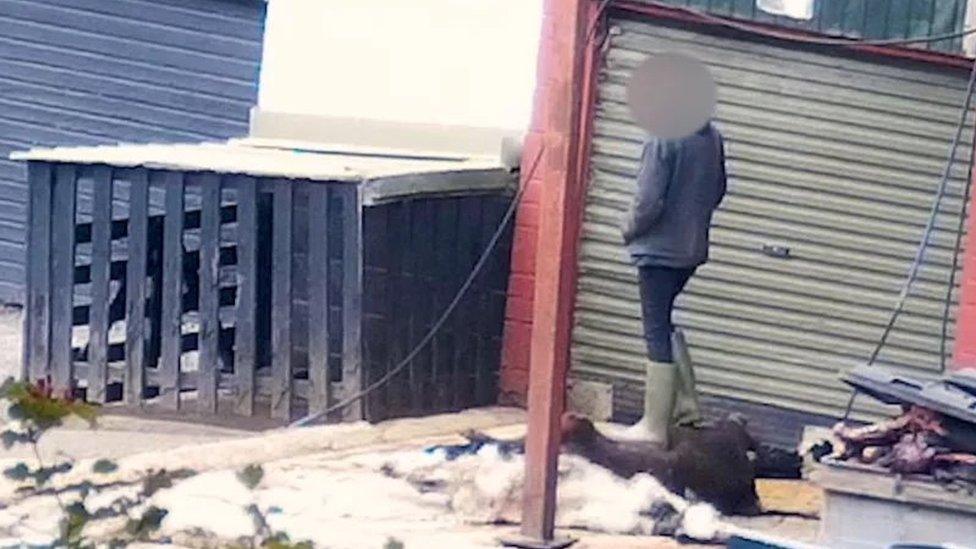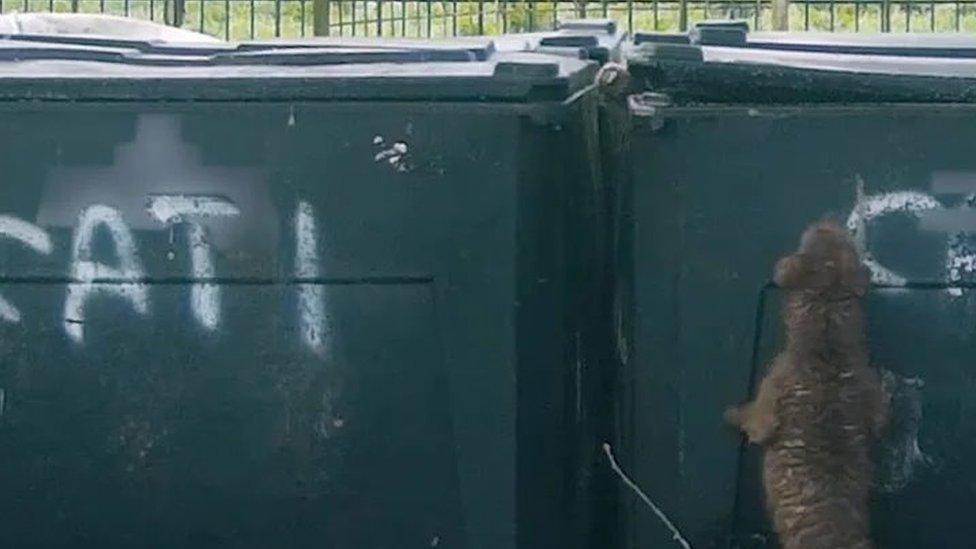Blatant breaches of dead animal disposal uncovered
- Published

Ecotricity recorded a person repeatedly jumping on a dead cow
Covert footage has revealed that blatant breaches of how dead animals should be disposed of are taking place.
Farmers and landowners often engage the services of hunts to dispose of dead livestock - known as "fallen stock".
It is classed as high risk waste and there are strict rules governing how it should be stored and destroyed.
Filming in 2021 revealed rules were not being followed at five sites. Defra said robust biosecurity was fundamental to protect human and animal health.
The investigation in England and Wales was commissioned by Dale Vince - the founder of the Gloucestershire Vegan certified energy company Ecotricity.
Swarming maggots
Government guidelines state organisations should have "a pest control programme as protection against insects, rats, birds and other pests".
It also states that containers used to store carcasses must be "leak-proof and securely covered immediately".

The footage also showed a dog trying to get into a bin containing the animal carcasses
The footage shows a different story with rotting flesh and bones piled up high in open topped containers for hours.
Maggots can be seen swarming over them, with some dead animals left lying outside.
The rules were introduced to limit the risk of spreading infection such as Mad Cow Disease - which led to the culling of millions of cattle in the 1990s.
A Department for Environment, Food and Rural Affairs spokesperson said: "It is in the interest of any business or organisation to follow good practice.
"Fallen stock collectors must comply with the law, namely the Animal By-Products regulations, and can only operate under approval from the Animal and Plant Health Agency, who conduct regular inspections.
"Any breaches identified will result in enforcement action, which may lead to revocation of approval by APHA and prosecution by local authorities."